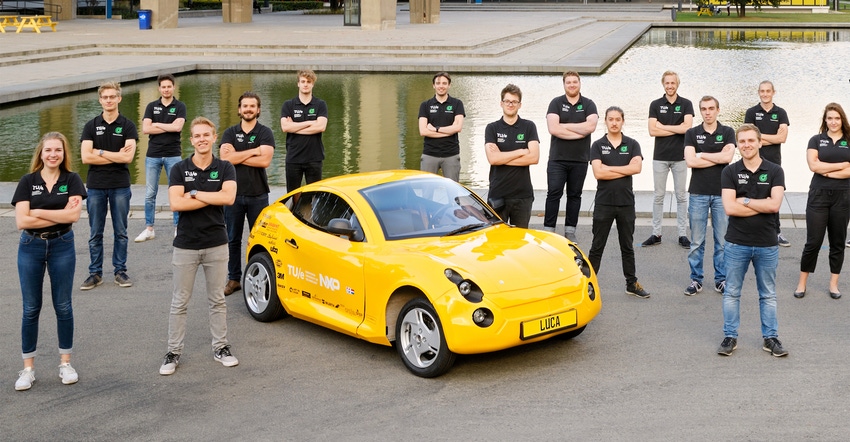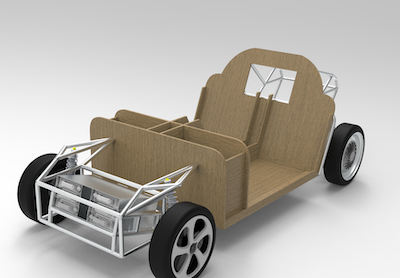Sustainable Concept Car Incorporates Recycled PET Honeycomb Cores
Entire chassis made using the PET honeycomb core material.
October 12, 2020

Thermoplastic honeycomb core industry leader, EconCore, is participating as a major partner of an innovative project to build a car made entirely out of recycled materials by the TU/ecomotive team at Eindhoven University of Technology, launched on 8 October 2020. The concept car is a lightweight, electric vehicle designed and built by students. The rationale behind the project is to demonstrate that waste can be a valuable resource, while gaining business, engineering and manufacturing skills and experience.
Wouter Winant, technical manager at EconCore said: “We’ve been involved with this project for the last four years now and each year our involvement has increased. We’re delighted to be supporting the TU/ecomotive team as we share similar values in terms of using technology to produce sustainable products and minimise waste. Through innovation, we can create much more sustainable solutions and the Luca car project demonstrates that in such a clever way.”
More than 20 m² of recycled PET honeycomb cores supplied by EconCore was used by the TU/ecomotive team in the design of LUCA. The whole chassis was made using the honeycomb core material, along with other areas such as the seat support structure, parts of the dashboard and the battery housing. After lamination of the composite skins, the strong, lightweight panels were used in most of the structural parts of the car. In addition to supplying the material, EconCore also provided extensive technical advice and consulting services.
|
The entire chassis of the Luca concept car is made using honeycomb core material, along with other areas such as the seat support structure, parts of the dashboard and the battery housing. Image: TUecomotive |
Winant continued: “The team asked for specific data and advice on how to optimally design and use the panels. We carried out tensile tests on the composite materials and three-point bending tests on small panel samples, with different core thicknesses and skin materials. The mechanical data from these tests provided the optimum design of sandwich panel with the right balance between sustainability, weight, strength and stiffness.”
One of the challenges the TU/ecomotive team had was gluing the recycled PET core to a composite sheet consisting of flax fibers and a recycled polyolefin matrix contributed by other partners. These two materials do not work well together when using adhesive.
Technical advice was provided by EconCore to overcome this problem. A polyester non-woven fleece was used to cover the surface area of the honeycomb core. This is compatible with the adhesive and composite skin layers. A thin PET barrier film was used to ensure the adhesive glue did not flow through the fleece into the honeycomb cells, keeping the panel lightweight. All the materials were made of recycled PET, maintaining the aim of using recycled materials in a circular economy.
Winant concluded: “What’s apparent to us, now the project is complete, is how the Luca car demonstrates just how versatile the recycled PET honeycomb core panels are, with the potential range of applications it can be used for. Not just in automotive terms but in other industrial and consumer applications where strength, rigidity and light weight are such important characteristics. The potential is huge.”
About the Author(s)
You May Also Like





